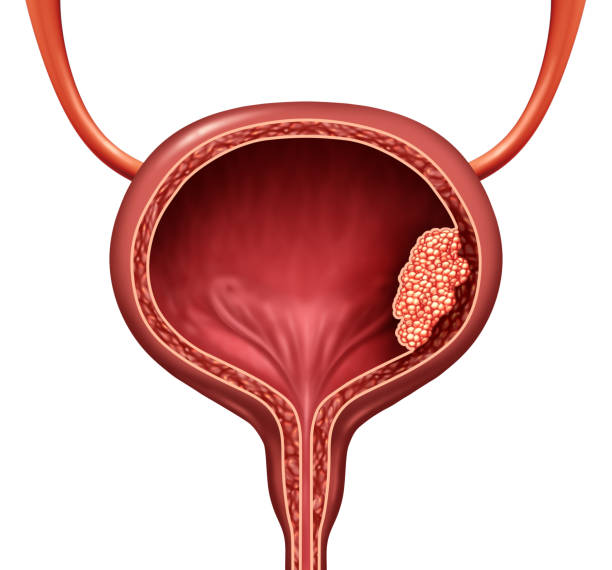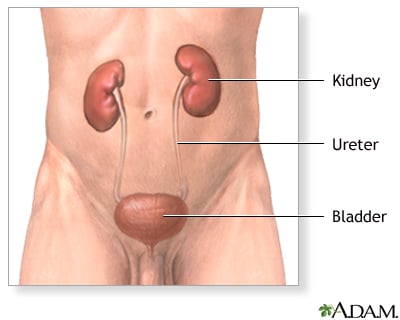Know All You Need to Know About Bladder Cancer

What Is Bladder Cancer?
Bladder Cancer is it starts when cells that form the structure of the bladder start to grow out of control. As more cancer cells develop, they will form a tumor and, with time, spread to other parts of the body.

The bladder is a hollow organ within the lower pelvis. It’s flexible, muscular walls that will stretch to carry urine and squeeze to send it out of the body. The bladder’s main job is to store urine. Urine is liquid waste made by the two kidneys then carried to the bladder through 2 tubes called ureters. Once you urinate, the muscles within the bladder contract and urine are forced out of the bladder through a tube called the urethra.
What are Bladder Cancer Risk Factors?
A risk factor is anything that affects your chance of getting a disease like cancer. Different cancers have different risk factors. you’ll change some risk factors, like smoking or weight; others, like your age or case history, you can’t.
But having a risk factor, or maybe many doesn’t mean that you simply will get the disease. many of us with risk factors never get bladder cancer, while others with this disease may have few or no known risk factors.
Still, it’s important to understand the danger factors for bladder cancer because there could also be belongings you can do this might lower your risk of getting it. If you’re at higher risk due to certain factors, you would possibly be helped by tests that would find it early, when treatment is presumably to be effective.
Many risk factors make an individual more likely to develop bladder cancer.
Smoking
Smokers have a 3 times higher risk of getting bladder cancer compared with non-smokers. So, if you smoke cigarettes/cigars/marijuana, the biggest action you can take to decrease your cancer risk is quit smoking. Smoking causes about half of all bladder cancers in both men and ladies.
Workplace exposures
Several industrial chemicals are linked with bladder cancer. Chemicals called aromatic amines, like benzidine and beta-naphthylamine, which are sometimes utilized in the dye industry, can cause bladder cancer.
Workers in other industries that use certain organic chemicals also may have a better risk of bladder cancer. Industries carrying higher risks include makers of rubber, leather, textiles, and paint products also as printing companies. Other workers with an increased risk of developing bladder cancer include painters, machinists, printers, hairdressers (probably due to heavy exposure to hair dyes), and truck drivers (likely due to exposure to diesel fumes).
Cigarette smoking and workplace exposures can act together to cause bladder cancer. So, people that smoke who also work with cancer-causing chemicals have an especially high risk of bladder cancer.
Certain medicines or herbal supplements
According to the US Food and Drug Administration (FDA), the use of the diabetes medicine pioglitazone (Actos®) is linked with an increased risk of bladder cancer. The danger seems to be higher when higher doses are used.
Dietary supplements containing aristolochic acid (mainly in herbs from the Aristolochia family) are linked with an increased risk of urothelial cancers, including bladder cancer.
Arsenic in beverage
Arsenic in beverages can the increase risk of bladder cancer. Because contaminated water is the most likely source of arsenic exposure, your risk of arsenic-related bladder cancer depends on your water source.
Not drinking enough fluids
People who drink tons of fluids, especially water, every day tend to possess lower rates. This could be because they empty their bladders more often, which could keep chemicals from lingering in their bladder.
Chemotherapy or radiation therapy
Taking the chemotherapy drug cyclophosphamide (Cytoxan®) for a long time can irritate the bladder and increase the risk of bladder cancer. If you are taking this drug, make sure to drink plenty of fluids to help protect the bladder from irritation.
Your risk of developing bladder cancer is also higher if you have ever received radiation to the pelvis.
Who treats bladder cancer?
Based on your treatment options, you would possibly have different types of doctors on your treatment team. These doctors could include:
Urologists: surgeons who concentrate on treating diseases of the urogenital system and male genital system
Radiation oncologists: doctors who treat cancer with radiotherapy
Medical oncologists: doctors who treat cancer with medicines like chemotherapy and immunotherapy
You might have many other specialists on your treatment team also, including physician assistants, nurse practitioners, nurses, nutrition specialists, social workers, and other health professionals.
How can Ankr help?
Ankr is a cancer education and navigation platform developed by a team of cancer experts and patients. Ankr helps you learn about treatment options for bladder cancer, and how can pancreatic cancer be cured, and helps you navigate through your chemotherapies and other treatments. By using Ankr, you can prevent and manage side effects and avoid an ER visit!
Get started now by signing up on the myAnkr website or by downloading the Ankr – Cancer Companion app on your phone.
